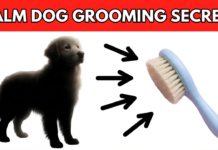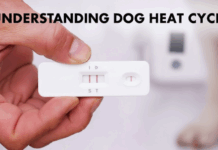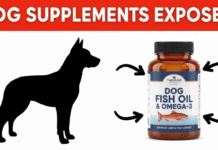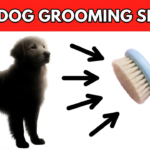Last Updated on October 14, 2024 by Dogs Vets
Is your furry friend constantly scratching, biting, or licking their skin? Persistent itching in dogs is not just annoying—it can be a sign of underlying health issues that require attention. This comprehensive guide explores the most common causes of canine itching and provides up-to-date, veterinarian-approved solutions to help your pet find relief.
Understanding Canine Itching: More Than Just a Nuisance
Recent studies show that skin problems are among the top reasons pet owners visit veterinarians, with itching being a primary symptom. In fact, a 2023 survey by the American Veterinary Medical Association (AVMA) found that 40% of dog owners reported their pets experiencing skin issues in the past year.
The Top 7 Reasons for Canine Itching
1. Flea Allergy Dermatitis (FAD)
Prevalence: Affects up to 40% of dogs with skin allergies (American Animal Hospital Association, 2024)
FAD occurs when dogs are hypersensitive to flea saliva. Even a single flea bite can trigger intense itching and discomfort.
Symptoms:
- Intense scratching, especially at the base of the tail
- Red, inflamed skin
- Hair loss
- Scabs and hot spots
Solution:
- Use year-round flea prevention recommended by your vet
- Treat all pets in the household
- Thoroughly clean your home environment
2. Environmental Allergies (Atopic Dermatitis)
Prevalence: Affects 10-15% of dogs (Journal of Veterinary Dermatology, 2023)
Atopic dermatitis is an allergic reaction to environmental substances like pollen, dust mites, or mold spores.
Symptoms:
- Chronic itching, especially around face, paws, and ears
- Redness and inflammation
- Secondary skin infections
Solution:
- Allergy testing to identify specific triggers
- Immunotherapy (allergy shots)
- Medications like Apoquel or Cytopoint
- Regular bathing with hypoallergenic shampoos
3. Food Allergies
Prevalence: Accounts for 10% of all dog allergies (Veterinary Clinics: Small Animal Practice, 2024)
Food allergies occur when a dog’s immune system overreacts to certain proteins in their diet.
Symptoms:
- Year-round itching
- Gastrointestinal issues (vomiting, diarrhea)
- Ear infections
Solution:
- Conduct an elimination diet under veterinary supervision
- Switch to hypoallergenic or novel protein diets
- Avoid common allergens like beef, chicken, dairy, and wheat
4. Skin Infections (Bacterial or Yeast)
Prevalence: Secondary infections occur in up to 66% of dogs with allergic skin disease (Journal of Small Animal Practice, 2023)
Skin infections often develop as a secondary problem due to allergies or other skin conditions.
Symptoms:
- Intense itching
- Redness and inflammation
- Odor
- Crusty or scaly skin
Solution:
- Medicated shampoos
- Topical or oral antibiotics for bacterial infections
- Antifungal treatments for yeast infections
- Addressing the underlying cause to prevent recurrence
5. Parasites (Besides Fleas)
Prevalence: Varies by region and parasite type
Mites (causing sarcoptic or demodectic mange), ticks, and lice can all cause intense itching in dogs.
Symptoms:
- Localized or generalized itching
- Hair loss
- Redness and inflammation
- Visible parasites or eggs in severe cases
Solution:
- Veterinary diagnosis to identify the specific parasite
- Prescription antiparasitic medications
- Regular preventative treatments
6. Hormonal Imbalances
Prevalence: Affects up to 0.7% of dogs (Hypothyroidism specifically, JAVMA 2023)
Conditions like hypothyroidism or Cushing’s disease can lead to skin problems and itching.
Symptoms:
- Symmetrical hair loss
- Dry, dull coat
- Increased skin pigmentation
- Weight changes
Solution:
- Blood tests to diagnose hormonal issues
- Hormone replacement therapy or other appropriate medications
- Regular monitoring and dose adjustments
7. Psychological Causes
Prevalence: Estimated to affect 2-5% of dogs with chronic itching (Veterinary Behavior Symposium, 2024)
Anxiety, stress, or boredom can lead to excessive licking or scratching behaviors.
Symptoms:
- Obsessive licking or chewing, often of paws or flanks
- No obvious skin abnormalities
- Behavior may worsen when the dog is alone or stressed
Solution:
- Behavioral modification techniques
- Increased mental and physical stimulation
- Anti-anxiety medications in severe cases
- Consultation with a veterinary behaviorist
Effective Treatments and Prevention Strategies
- Regular Grooming and Bathing
- Use hypoallergenic, vet-approved shampoos
- Frequency depends on your dog’s coat type and lifestyle
- Nutrition and Supplements
- High-quality, balanced diet rich in omega-3 fatty acids
- Probiotics to support skin health and immune function
- Environmental Management
- Regular cleaning to reduce allergens
- Use air purifiers in the home
- Limit exposure to known allergens during peak seasons
- Topical Treatments
- Medicated sprays or wipes for localized itching
- Coconut oil or aloe vera for mild skin irritations
- Medications
- Antihistamines for mild allergies
- Corticosteroids for short-term relief (under veterinary supervision)
- Novel treatments like Janus kinase (JAK) inhibitors for chronic allergic dermatitis
- Alternative Therapies
- Acupuncture (shown to reduce itching in 60% of treated dogs, Journal of Traditional Chinese Veterinary Medicine, 2023)
- Cold laser therapy for reducing inflammation
- Regular Veterinary Check-ups
- Annual skin and coat assessments
- Prompt attention to new or worsening skin issues
Conclusion
Understanding the root cause of your dog’s itching is crucial for effective treatment. While this guide provides comprehensive information, always consult with your veterinarian for personalized advice and treatment plans. With the right approach, you can help your furry friend find relief and enjoy a happier, itch-free life.
Remember, persistent itching is not just an annoyance—it’s your dog’s way of communicating that something isn’t right. By staying vigilant and proactive, you can ensure your pet’s skin health and overall well-being.
5 Important Questions About Dog Itching: Reasons and Solutions
1. What are the most common causes of itching in dogs?
Answer: The most common causes of itching in dogs include:
- Flea Allergy Dermatitis (FAD)
- Environmental allergies (atopic dermatitis)
- Food allergies
- Skin infections (bacterial or yeast)
- Parasites (mites, ticks)
These factors can cause varying degrees of itching and discomfort in dogs, often requiring different treatment approaches.
2. How can I tell if my dog’s itching is caused by fleas?
Answer: Signs that your dog’s itching may be caused by fleas include:
- Intense scratching, especially at the base of the tail
- Visible fleas or flea dirt (small black specks) in the fur
- Red, inflamed skin
- Hair loss, particularly in the lower back area
- Small, raised bumps on the skin
Even if you don’t see fleas, your dog could be allergic to flea saliva, causing intense itching from just a few bites.
3. Can food allergies cause itching in dogs?
Answer: Yes, food allergies can cause itching in dogs. Food allergies typically manifest as:
- Year-round itching (not seasonal)
- Itching focused on the ears, paws, armpits, and groin area
- Gastrointestinal symptoms like vomiting or diarrhea
- Recurring ear infections
Common food allergens for dogs include beef, chicken, dairy, wheat, and soy. Diagnosing food allergies usually involves an elimination diet under veterinary supervision.
4. What are effective home remedies for relieving dog itching?
Answer: While severe itching should be addressed by a veterinarian, some home remedies can provide relief for mild cases:
- Oatmeal baths: Soothe irritated skin
- Coconut oil: Has antimicrobial properties and can moisturize skin
- Apple cider vinegar (diluted): Can help with yeast and bacterial overgrowth
- Chamomile and green tea soaks: Have anti-inflammatory properties
- Proper grooming: Regular brushing and cleaning can prevent skin issues
Always consult with your vet before trying new treatments, especially for persistent or severe itching.
5. When should I take my itching dog to the vet?
Answer: You should take your dog to the vet if:
- The itching is severe or persistent
- You notice skin changes like redness, swelling, or hair loss
- There are signs of infection (odor, pus, or scabs)
- Your dog is losing weight or seems lethargic
- Home remedies aren’t providing relief after a few days
- The itching is accompanied by other symptoms like vomiting or diarrhea
Early intervention can prevent more serious health issues and provide your dog with faster relief.
References
[1] Hensel, P., Santoro, D., Favrot, C., Hill, P., & Griffin, C. (2015). Canine atopic dermatitis: detailed guidelines for diagnosis and allergen identification. BMC Veterinary Research, 11, 196. https://doi.org/10.1186/s12917-015-0515-5
[2] Rust, M. K., & Dryden, M. W. (1997). The biology, ecology, and management of the cat flea. Annual Review of Entomology, 42, 451-473. https://doi.org/10.1146/annurev.ento.42.1.451
[3] Olivry, T., & Mueller, R. S. (2017). Critically appraised topic on adverse food reactions of companion animals (3): prevalence of cutaneous adverse food reactions in dogs and cats. BMC Veterinary Research, 13(1), 51. https://doi.org/10.1186/s12917-017-0973-z
[4] Budgin, J. B., & Flaherty, M. J. (2013). Alternative therapies in veterinary dermatology. Veterinary Clinics: Small Animal Practice, 43(1), 189-204. https://doi.org/10.1016/j.cvsm.2012.09.002
[5] Nuttall, T., Harvey, R. G., & McKeever, P. J. (2009). A colour handbook of skin diseases of the dog and cat (2nd ed.). Manson Publishing Ltd. ISBN: 978-1840760101

















